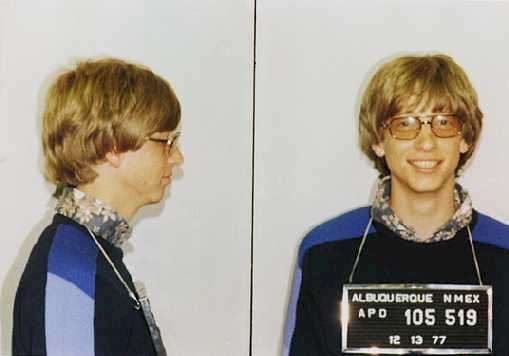I don't equate fingerprints with DNA. I don't think its inconsistent, you do.
It IS inconsistent, end of story....
I don't equate fingerprints with DNA. I don't think its inconsistent, you do.
I don't equate fingerprints with DNA. I don't think its inconsistent, you do.
If you want my DNA, find away to get it. I don't think I should have to give it to you because I was arrested.
fingerprints are unique, no doubt
DNA however...is beyond unique, DNA can be used as a genetic weapon, as a way to produce clones without your consent, a way to access information without your consent...if your DNA is stolen, it is a loss of yourself.
I know, DNA information currently does not mean much to us...but in future DNA will link everyone to all the deeds, to the family lines...trace back their actions and information...massive amounts of information are stored in DNA, that if fall into wrong hands can be used in bad ways.
Boogey-man fears. Irrational.
Actually, Draqon accidentally made a pretty interesting and good point! Right now we can already clone dogs, who is to say that cloning humans won't be everyday proceadure in 20 years? If there is a database with millions of DNAs, who can guarantee that it won't be stolen or sold or accessed by unauthorized people???
And if you think it can not, just read the news when government people lose laptops with 2 million people's data on them...
And just exactly what is the precise danger of someone getting hold of the database? What are they going to do with it? It wouldn't help them one bit if they are trying to steal identities, for example.

Also, I assume DNA can be digitized, thus a person can be described completely by a bunch of numbers. If so, you don't even need the chewing gum or other physical sample from a person just the access to the database...
So, once again, the fears are nothing but bogey-man stuff. Period.
yeah but people, specifically 80-90% of the popul;ation, are their own worst enemies.
new motto for humanity: "stay stupid :shrug:"
What rights do you think you are protecting?
Any electronic DNA database would surely not be records people's entire genome sequence. It would probably just be records of the 6-13 loci that they look at when doing DNA comparisons to see if two samples came from the same person. You couldn't use to create a clone, or whatever.
The annoying thing is that the odds of each new addition to the database giving you a false match to someone else already in the database grows exponentially with the size of the database. By the time you have a few hundred thousand people in the database, there will probably be many hundreds of false matches.
If the odds of two randomly selected profiles matching are 1:150 million, then there will be a 50% chance of two profiles falsely matching in your database once your database gets to 14400 people. By the time you get to 37000 people there is a 99% chance that there will be at least one set of false matches (and a high probability that there will be many more than just one set). If you do a search through any of the state databases (much less the national database) you will find hundreds or thousands of pairs of people who have the same genetic profile.Hundreds?? Not likely in the very least! The markers they currently use are good enough for 1:150million and they could increase those odds by a factor of millions (meaning 1:several trillion) by simply adding one more short sequence to the record.
If the odds of two randomly selected profiles matching are 1:150 million, then there will be a 50% chance of two profiles falsely matching in your database once your database gets to 14400 people. By the time you get to 37000 people there is a 99% chance that there will be at least one set of false matches (and a high probability that there will be many more than just one set). If you do a search through any of the state databases (much less the national database) you will find hundreds or thousands of pairs of people who have the same genetic profile.
Google "birthday problem" for a full explanation of the mathematics.
